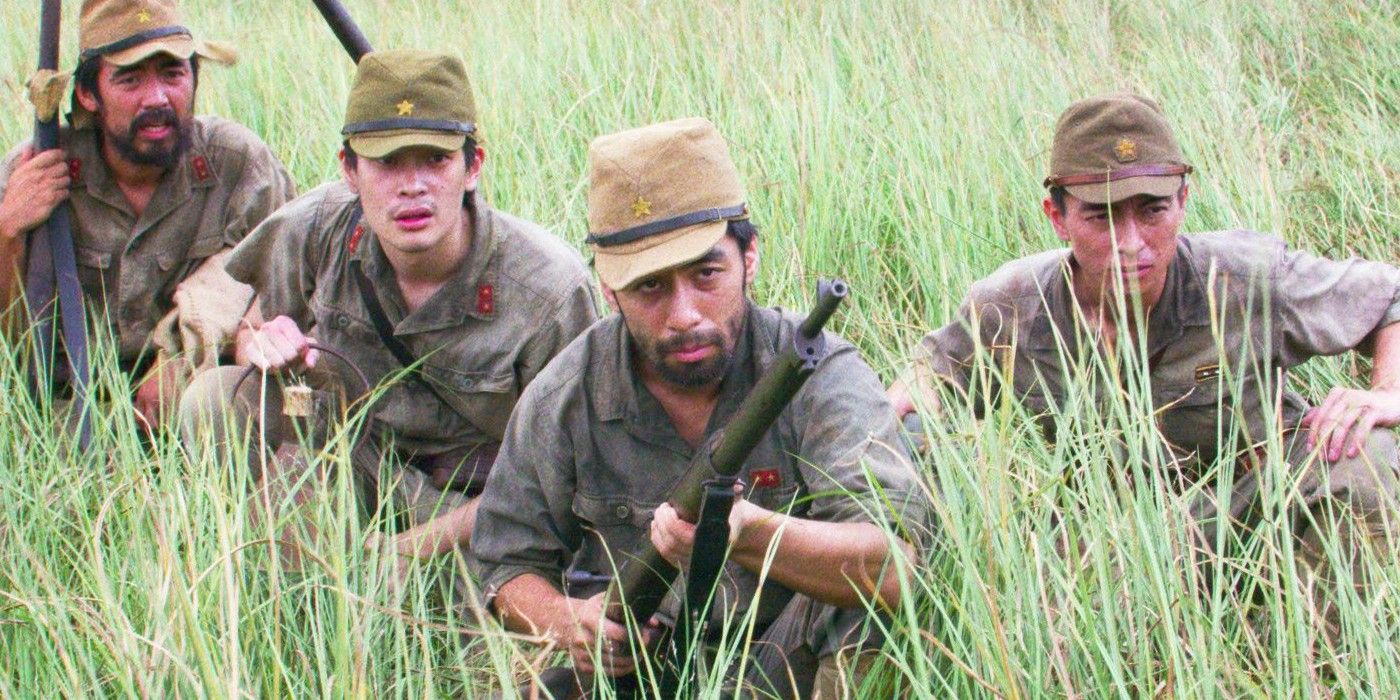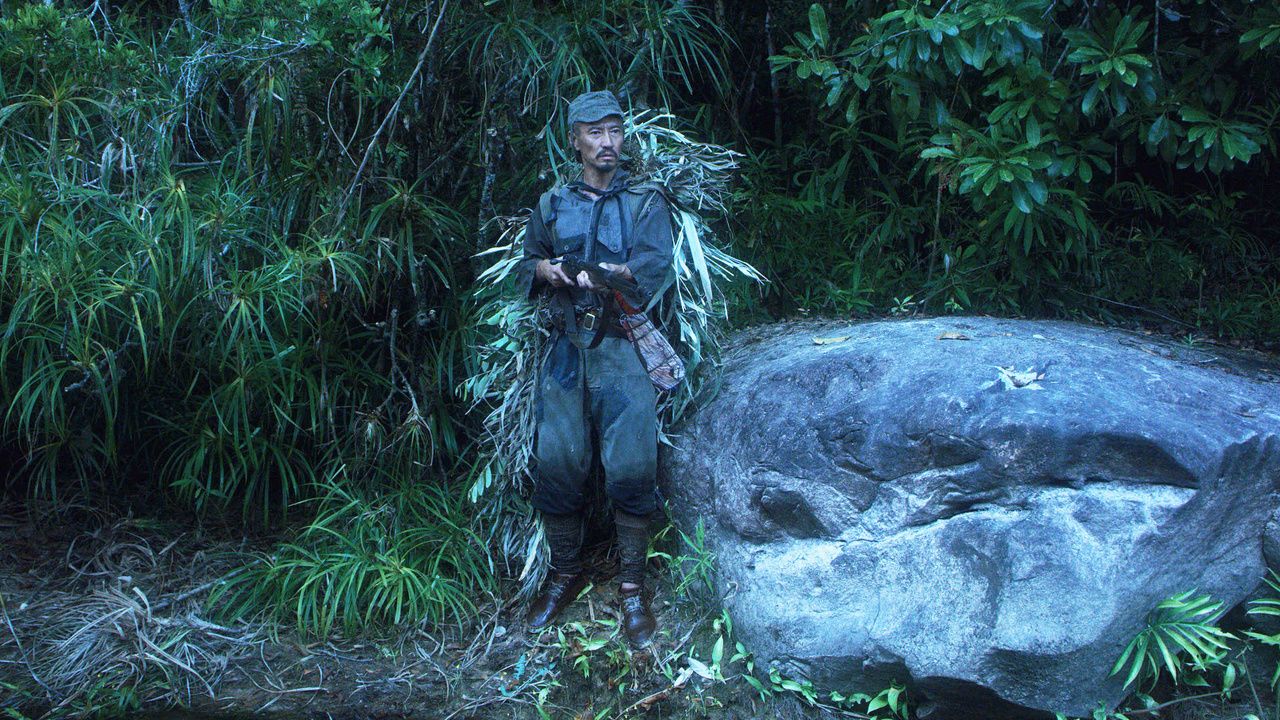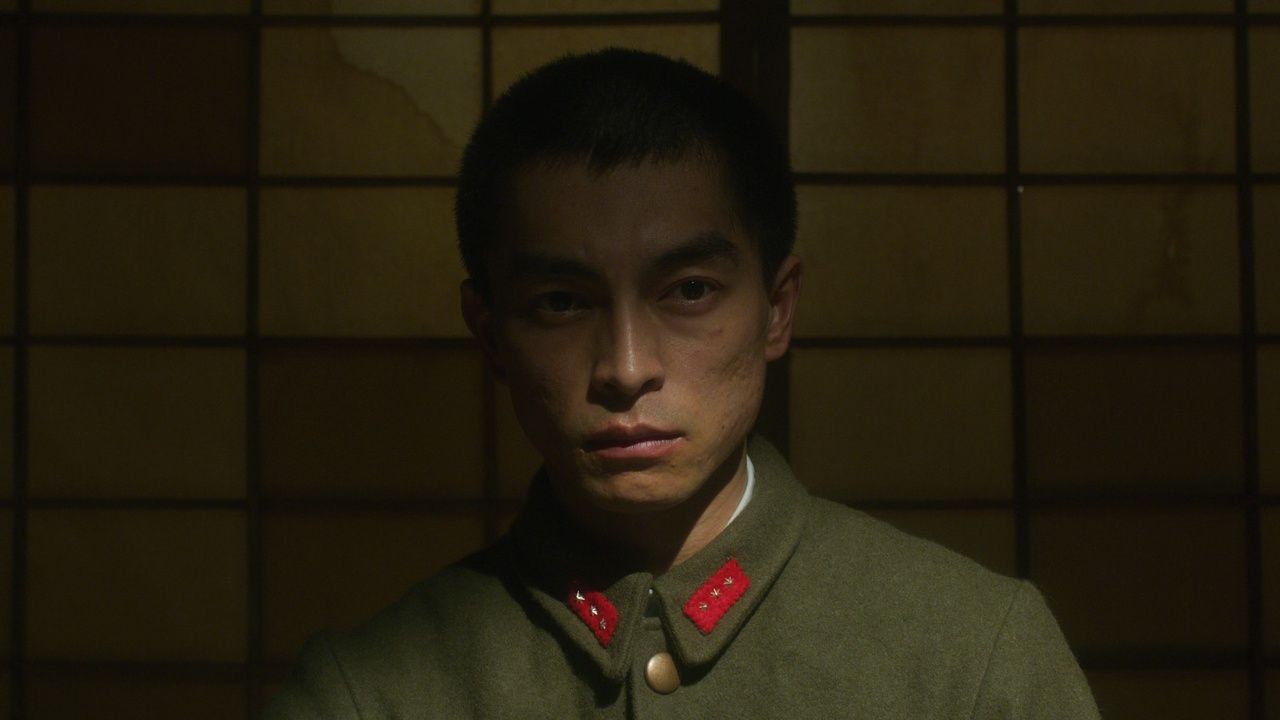Though we've seen plenty of movies about the European theater during WWII, the Pacific War still has plenty of untold stories. In 2017 there was the fantastic Korean war epic Battleship Island, and now the Cannes Film Festival sees the premiere of Onoda: 10,000 Nights in the Jungle, a war epic about a Japanese soldier who spent nearly three decades in the Philippines, never believing that the war was over.
The best thing that can be said about Onoda is that it avoids being the big military hurrah it so easily could have been. You see, depending on who you ask, Hiroo Onoda is either a great hero and the embodiment of everything that made Imperial Japan great, a man who refused to bow down to the Western invaders, or a delusional fool who killed innocents while waging an imaginary holy war. Rather than portray its titular character as either one thing or the other, director Arthur Harari decides to include it all, the good and the ugly, and let the audience draw their own conclusions. In the end, the movie is about a delusional guy who doesn't realize he's been indoctrinated, but it is also an emotional exploration of loyalty, camaraderie, and stubbornness.
Co-written by Harari and Vincent Poymiro, Onoda flashes back and forth between its titular character's time in the Philippines at the tail-end of the war, as well as the time he was recruited and indoctrinated into fighting a "secret war" using guerilla warfare to destabilize foreign countries before his commanding officers came to rescue him, and scenes from the '70s where a Japanese tourist starts looking for Onoda to bring him home. Despite a snail-like pace, the film doesn't really give you a moment's rest, keeping the tensions high but just changing its source from a bigger and stronger military force, to having to survive in the jungle, to whether the remaining soldiers will finally realize the truth and give up before killing each other. That being said, the film's nearly 3-hour-long runtime feels unnecessary, and no matter how well the cast sells the tension of having to survive alone in the jungle, the movie starts to drag quite a bit towards its middle section, which could have easily cut away 20 minutes of runtime without affecting the film at all.
Aided by Tom Harari's wonderful use of natural light, Onoda strikes a balance between a thrilling apocalyptic war drama and a darkly funny film, and it works because of the austere performances by the two actors that play Onoda, Yûya Endô as the younger version of the character and Kanji Tsuda as the older, tired lieutenant. The duo fully sells the paradox of Onoda's military loyalist conviction and also his delusion with equal gravitas, while also creating a cohesive arc between both of their looks and performances.
Releasing a movie about an indoctrinated soldier who refuses to see reality at a time where dangerous and violent conspiracy theories are running amok feels irresponsible, but to Harari's credit, Onoda portrays its title character's belief with as much seriousness as it does absurdist humor. Seeing Onoda and a fellow soldier spend hours deciphering what they believe is an elaborate secret code in radio broadcasts, concluding that there is a resistance telling them what to do, plays almost like something out of The Men Who Stare at Goats.
Onoda could have easily fallen prey to biopic movie tropes, turning its main subject into a military hero as he becomes the last man standing in a way for glory and honor. Instead, the movie reveals the contradictions of war, where one soldier is made out to be a hero standing alone in the face of adversity, while their leaders abandon them to be alone in the jungle for 30 years.
Score: B-



